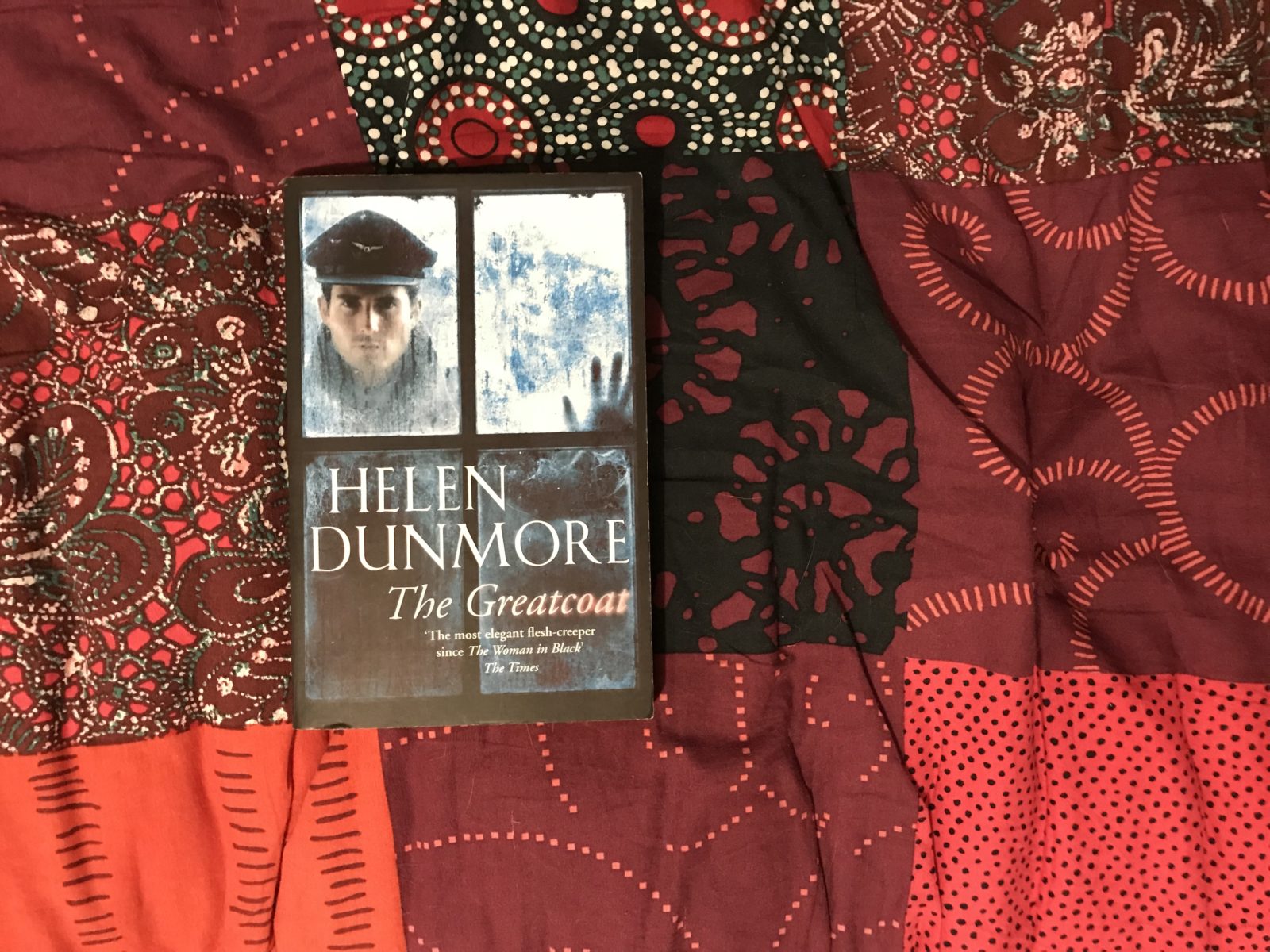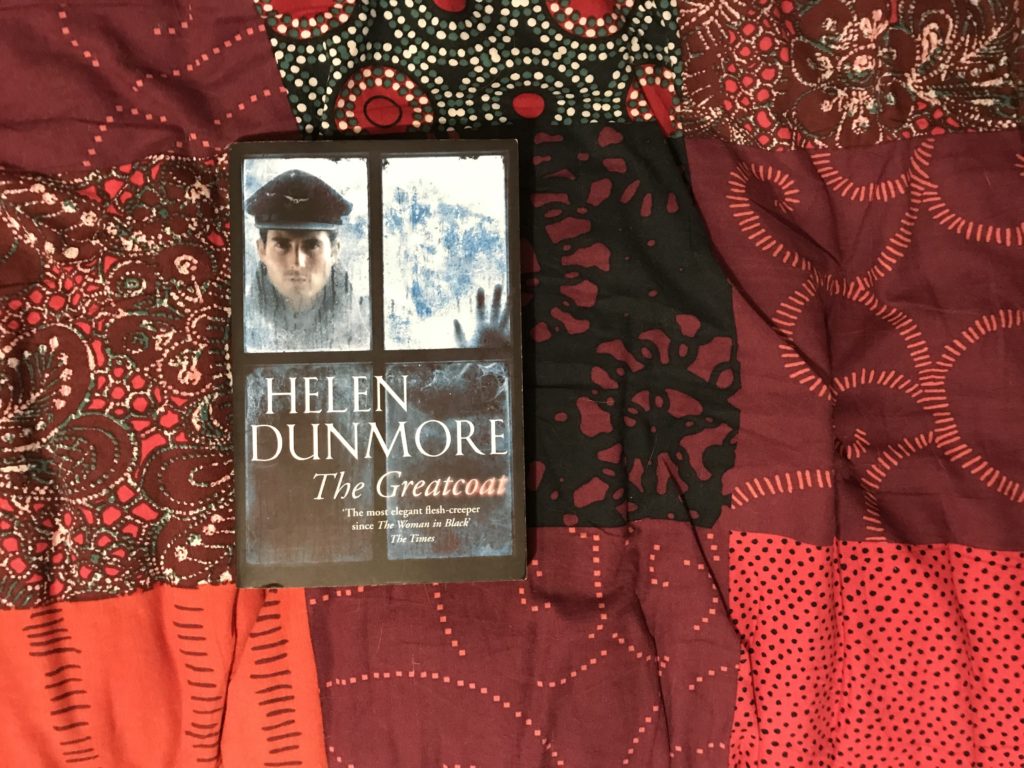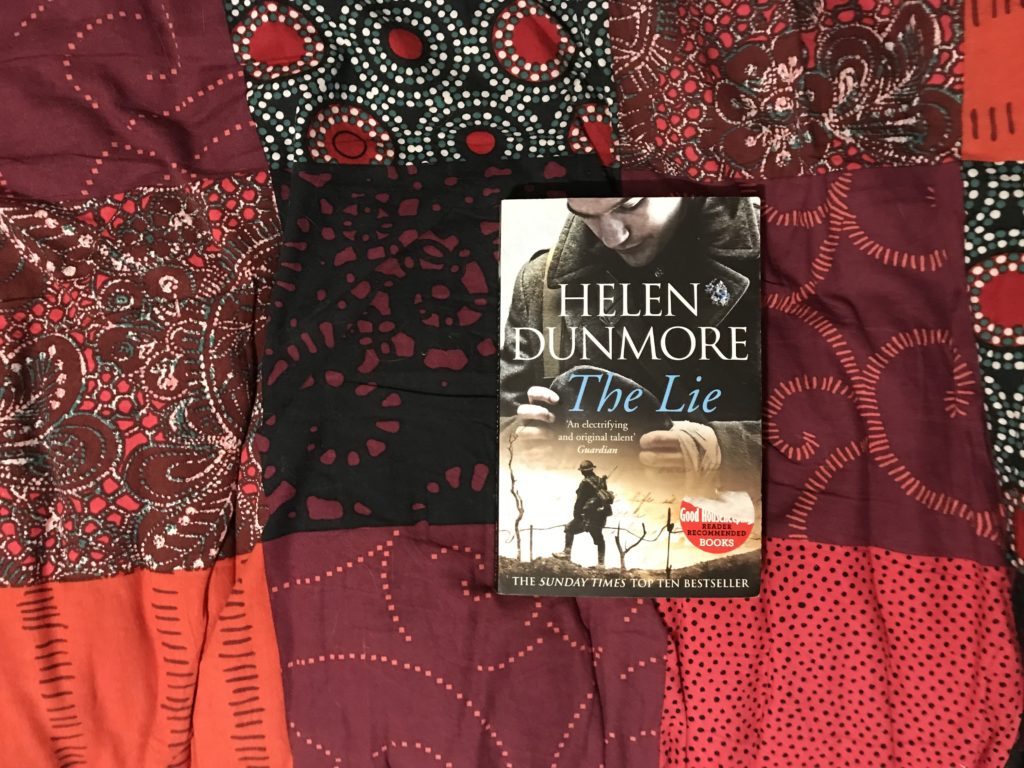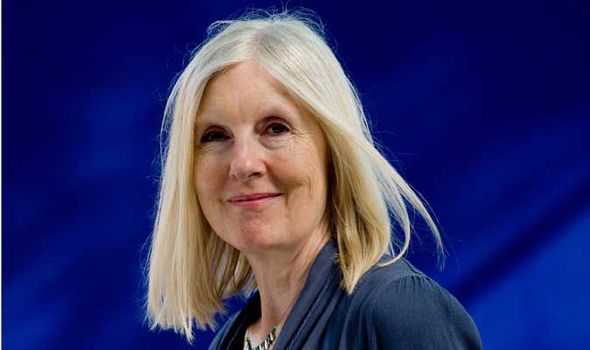Okay, so I have to admit, since I already had two other of Helen Dunmore’s novels lying around my apartment, I read those instead of the novel that won her the Women’s Prize for Fiction, which was A Spell of Winter. Pinky swear that this will be the only time that happens!
The first novel I read was The Greatcoat, which happens to be Dunmore’s first foray into ghost stories. In the novel a young couple move into a shabby apartment in order to save money, and the woman finds an old greatcoat from the Second World War in one of the closets. That same night, a pilot knocks on her window for the first time, and continues to visit her throughout the novel. With a plot that hearkens back to Cortázar’s short story “Noche Boca Arriba”, where there are two different versions of the same person’s life being told, and by the end readers are not sure which one is true, Dunmore is able to give her ghost a tangible, human feel that is in no way scary. (Believe me, I do not do scary at all.)
In the second novel I read by her, The Lie, a British army vet returned from World War I (wars seem to be a common theme in many of her novels), deals not only with his trauma from the trenches, where his best friend and soul mate died, but also with the magnitudes from a lie, or rather a withholding of truth, that will have significant consequences for his future.
After reading the back covers for both of these novels, which is the only pre-reading I do before I start a new book, I was not immediately enchanted, and even wondered how she had received the first ever prize for Women’s Fiction! But one can easily see why after reading just a small portion of her writing: it draws the reader in, making the pages turn easily, and has plots that captivate in their inability to give the reader a clue as to how they will end.
Dunmore was a British novelist, poet, and children’s author, as well as writing young adult novels and short stories, who died just a couple of years ago in 2017. In addition to being the first winner of the Women’s Prize for Fiction, she was also won the National Poetry Competition for her book The Malarky and the McKitterick Prize for her novel Zennor in Darkness, which was her debut novel. She wrote more than a dozen novels, four short story collections, 12 poetry collections, eight young adult novels, and more than 15 children’s books over her life, and contributed to The Guardian. Finally, she was also a Fellow of the Royal Society of Literature. She began writing poetry as a young child, studied English at university, and taught English as a foreign language in Finland. While continuing to write poetry, she also reviewed poetry for various publications and wrote introductions for the work of Emily Brontë, DH Lawrence, and F. Scott Fitzgerald to name a few, and then began to write her novels. She was extremely accomplished in so many fields, and it would take a long time to read all of her work, but I think these two novels are an adequate sample to get you started. Or you could just read true to the list with A Spell of Winter. 😉



